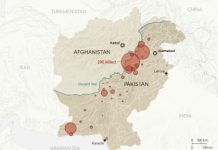DNA
The BRICS (Brazil, Russia, India, China, and South Africa) group has evolved over the years from a loosely tied association of emerging economies into a formidable global forum with growing geopolitical and economic influence. As the bloc expands its reach, the possibility of new members joining—particularly Pakistan—has gained momentum. Given Pakistan’s strategic location, its economic potential, and its increasing alignment with key BRICS members, particularly China and Russia, the time may be ripe for the country to consider integration into this emerging global consortium.
BRICS is often compared to well-established forums like the European Union (EU) and the Association of Southeast Asian Nations (ASEAN). While the EU is a highly integrated economic and political union, and ASEAN focuses on regional stability and economic cooperation in Southeast Asia, BRICS offers a unique platform driven by global south solidarity. It aims to challenge the existing Western-dominated global financial and political systems, particularly institutions like the International Monetary Fund (IMF) and the World Bank. This gives BRICS a more ideological and strategic edge, rather than being solely economic or regional.
With the establishment of the New Development Bank (NDB) and discussions about a potential common currency to reduce dependence on the U.S. dollar, BRICS is attempting to redefine global economic norms. It represents nearly 42% of the world’s population and over 25% of global GDP—figures that are hard to ignore. This growing influence makes BRICS an attractive bloc for countries like Pakistan, which often find themselves at the mercy of Western financial institutions and fluctuating diplomatic ties.
Pakistan’s potential membership in BRICS would provide it with an alternative platform for economic engagement and diplomatic balancing. With its close partnership with China under the China-Pakistan Economic Corridor (CPEC), and warming relations with Russia, Pakistan is already ideologically and strategically aligned with some of the BRICS core members. However, India’s presence in BRICS presents a challenge. The strained relations between Pakistan and India could complicate any near-term accession prospects, unless diplomatic channels are normalized.
Furthermore, Pakistan must also present itself as a stable and forward-looking economy. The country’s internal political turmoil, economic volatility, and security concerns could act as deterrents for BRICS members who value economic resilience and cooperation. Stability and policy consistency are key prerequisites for any serious consideration.
Nevertheless, BRICS is shifting from being a closed group to a more inclusive and diverse forum. The inclusion of countries like Egypt, Iran, and Ethiopia in its recent expansion wave suggests a broader vision that Pakistan can potentially benefit from. Membership could provide Pakistan with greater access to developmental financing, trade opportunities, and a stronger voice in shaping global norms that better represent the interests of developing countries.
In conclusion, while immediate entry into BRICS may be complicated by political and regional factors, the long-term prospect holds promise for Pakistan. A strategic pivot toward BRICS could complement Pakistan’s broader foreign policy goals, diversify its economic partnerships, and reduce reliance on Western institutions. For this to materialize, Pakistan must stabilize its domestic front and pursue proactive diplomacy with all BRICS members—including India. The future of global power dynamics may well depend on how such emerging alliances evolve, and Pakistan must position itself wisely within that transformation.

















